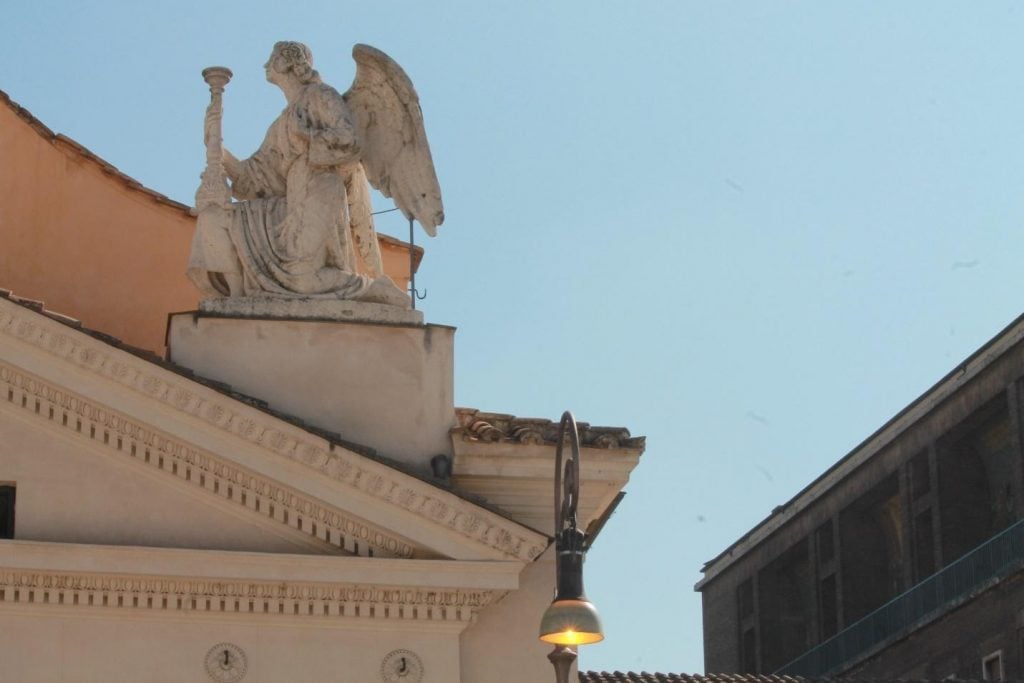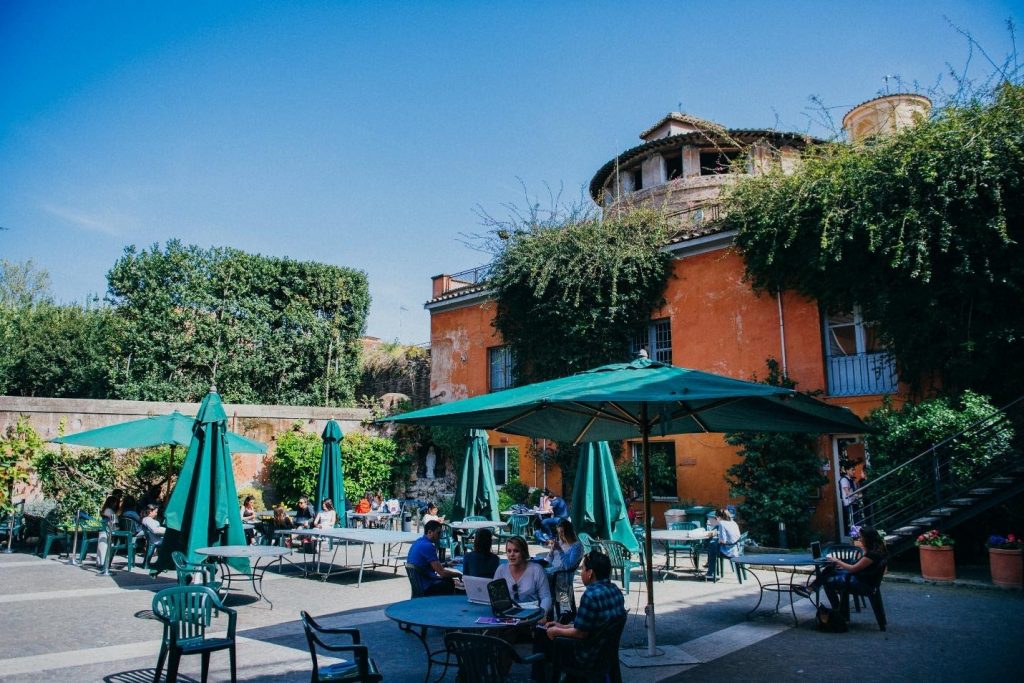

The English language is packed with humorous and interesting references to Rome. Learning some of these idioms can be an entertaining and thoughtful way to engage with English-Italian relations while you study abroad. Read on for brief explanations and historical information on some of the English language’s most popular references to Rome.
Learn the Popular Saying “Rome was not built in a day”
“Rome was not built in a day” is a famous adage meant to point out that great things take time to accomplish. The phrase has its origins in a medieval French saying, “Rome ne fu[t] pas faite toute en un jour.” It was introduced in English by the playwright John Heywood in his 1538 play A Dialogue Containing the Number in Effect of all the Proverbs in the English Tongue.
The Meaning Behind “When in Rome, do as the Romans Do”
Travellers around the world are fond of repeating the idiom “when in Rome, do as the Romans do,” and not only when they visit Rome. The expression is a simple way of expressing the need to adjust to the customs of a new place. It is thought to originate as a piece of advice from Saint Ambrose, the former Bishop of Milan.

The philosopher Saint Augustine had just arrived in Milan and was shocked to discover that the clergy would not fast on Saturdays as was usual in Rome. When he asked Saint Ambrose for an explanation, Ambrose stressed the necessity of adapting to the habits and rituals of the native people of the region.
“All roads lead to Rome,” Including the One Where You Study Abroad in Italy
This saying is Italian in origin and is well-known in both tongues. While you study abroad in Italy, you can express this phrase in its original language by saying “tutte le strade portano a Roma.” Today, the expression is used to suggest that it’s possible for different methods to lead to one outcome.
The proverb has its origin in the Roman Empire, a time when Rome was the center of a globe-spanning imperial project. Roman infrastructure was advanced beyond most other places, and citizens were impressed by the city’s expansive network of roads. This proverb started circulating as a succinct way to express admiration.
Learn What it Means “To Fiddle While Rome Burns”
Also dating back to ancient Rome, the expression “to fiddle while Rome burns” recalls a myth about former Roman Emperor Nero. Known to be a tyrannical and extravagant leader, Nero was known for his bizarre antics. In this case, the legend revolves around an incident where he supposedly played a musical instrument and composed a song while a fire destroyed parts of Rome in the 1st century AD. Today the phrase is used to rebuke someone who is idle during an emergency, like a student who ignores studying even though they have a serious exam coming up at their English language university in Italy.
The History of “Cross the Rubicon”
The Rubicon was the river that separated Italy and Cisalpine Gaul during the time of the Roman Empire. When Julius Caesar crossed it with his army in the year 49 BC, their crossing symbolized the start of a civil war. Today, the expression “to cross the Rubicon” refers to making an irrevocable decision that commits you to a particular course of action.
Do you want to study at an American university in Rome?
Contact John Cabot University for more information!




